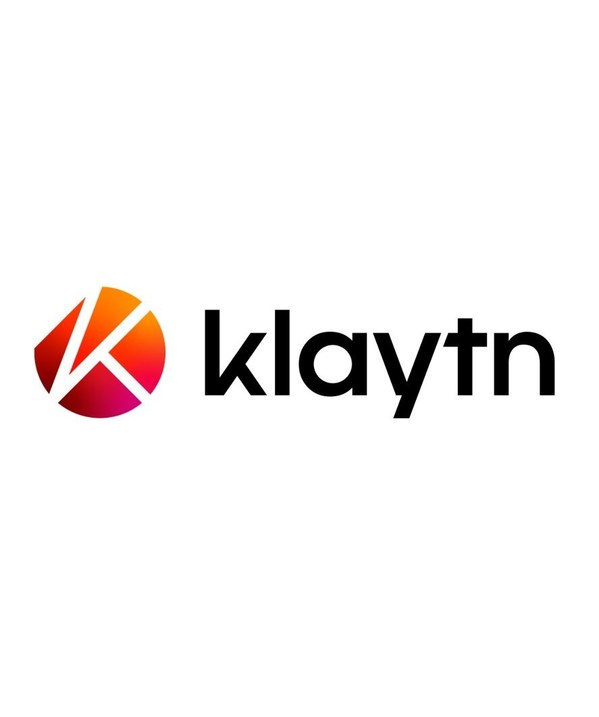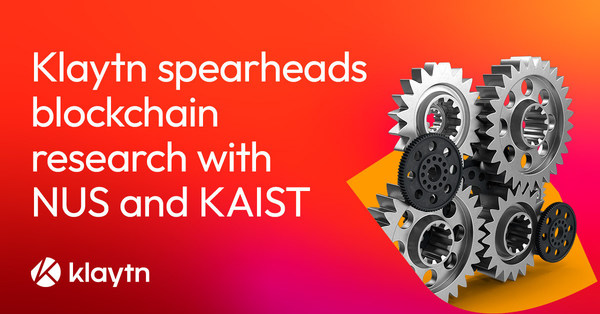 |
SINGAPORE, Aug. 8, 2022 /PRNewswire/ -- Klaytn, the leading Layer-1 blockchain in Asia, has announced its selection of Korea Advanced Institute of Science and Technology (KAIST) and the National University of Singapore (NUS) to host and operate its Blockchain Research Center (BRC) Program. The announcement was unveiled at Korea Blockchain Week by Dr Sangmin Seo, Representative Director, Klaytn Foundation during his 8 August keynote "The Technology Layer for Tomorrow's Metaverse".

Klaytn Spearheads World’s Largest Blockchain Research Center Program in Collaboration with Top-Ranking Universities NUS and KAIST.
BRC is a virtual research institute that aims to advance cutting-edge research for blockchain technology, deepen blockchain capabilities, and support industry growth. With a US$20m funding commitment from Klaytn over the next four years, BRC is to date the world's largest blockchain research center program in terms of known funding size.
With day-to-day operations run by a global research team, headed by KAIST and NUS researchers as Directors, BRC will operate in an open-source manner, where research conducted will be publicly disclosed as research papers or open-source software. External researchers will also be able to participate in ongoing research projects or submit their own proposals. The BRC will share knowledge and research results through community outreach efforts - from conferences to workshops - to carry forward Klaytn's vision to contribute to the blockchain community.
Dr Sangmin Seo, Representative Director, Klaytn Foundation, said, "In line with Klaytn's vision to be the bridge from Web2.0 to Web3.0, bridging the latest findings in blockchain between the research community and industry leaders is key for successful real-world applications in DeFi or the metaverse. Through our BRC program, in collaboration with leading minds from KAIST and NUS, we are delighted to take the next step in bringing our vision to life."
As part of the selection process, interested research institutes and consortiums were required to submit a proposal, outlining the intended operation model and organizational structure for BRC, detailed plans on research and outreach activities, as well as the suggestion evaluation model to measure BRC's progress.
7 proposals from 62 research institutes from 11 countries were received. Through a three-round selection process, proposals were evaluated and scored by the Klaytn Governance Council and third party experts based on their operational competence, as well as research execution and community engagement plans. With the highest score, the research consortium from KAIST and NUS was selected to lead BRC operations.
Dr Neo Yiu, Head of Technology Advocacy at Klaytn Foundation, said, "We look forward to seeing the Blockchain Research Center develop novel research capabilities for blockchains, foster global collaboration, and expand Klaytn's research contribution back to the web3 community and blockchain/distributed ledger technology (DLT) industry."
According to Coindesk's 2021 University Rankings for Blockchain, NUS and KAIST are among the top 30 out of 230 universities worldwide, ranking in 1st and 26th places respectively. Overall, NUS clinched the top ranking due to its multiple blockchain research centers, societies, partnerships, and conferences, as well as its masters program in digital financial technology.
The KAIST/NUS research consortium is led by Dr Min Suk Kang, Assistant Professor, School of Computing, KAIST and Dr Prateek Saxena, Associate Professor, School of Computing, NUS, both of whom hold extensive blockchain research experience. They will work closely with an international team of principal investigators from six other universities - UC Berkeley, Princeton University, Georgia Institute of Technology, Northern Arizona University, Yonsei University, and Carnegie Mellon University – to conduct BRC's research and outreach activities.
Dr Saxena said, "The BRC will deepen the research foundations of blockchain designs and applications. Together with Klaytn, we are delighted to be collectively creating an international platform for impactful research and to advance the global discourse on blockchains. We are excited that researchers from 8 leading international universities have come together towards this shared purpose, creating a unique initiative in the blockchain space."
Dr Kang said, "Our world-class blockchain researchers at the Blockchain Research Center will contribute to the seven pillars of blockchain research: consensus, privacy, network, smart contracts, DeFi, economics/ethics, and metaverse. To further the mass adoption of blockchain technology, the cross-pollination of ideas is key. Through the BRC, we look forward to fostering research and industry collaborations with like-minded participants around the world."
More information about the Blockchain Research Center can be found here.
For media enquiries, please contact:
Kimberley Kok
Corporate Communications Manager, Klaytn Foundation
+65 9189 4648
[email protected]
About Klaytn Foundation
Klaytn Foundation is an entity established in Singapore for the decentralization and growth of the Klaytn network. It is responsible for the stable operation of the Klaytn network and various implementations for the development of the Klaytn ecosystem.
For more information, please click here.
About Korea Advanced Institute of Science and Technology (KAIST)
KAIST is the first and top science and technology university in Korea. It was established in 1971 by the Korean government to educate scientists and engineers committed to industrialization and economic growth in Korea. Since then, KAIST and its graduates have been the gateway to advanced science and technology, innovation, and entrepreneurship. On the heels of its phenomenal growth over the past 50 years, KAIST has been recognised as the most innovative University in Asia (2016-2018) and Top-4 Young Universities in the World (2019). At KAIST, five colleges, seven schools, 13 graduate schools, and 27 departments offer a breadth of highly-regarded degree programs as well as interdisciplinary majors.
KAIST is leading innovation by identifying pressing global problems and taking on challenges to address those issues. Currently, there are 152 research institutes and centers at KAIST. Cutting-edge research covering a broad base from AI to sustainability are translating their inventions to address pressing issues around the globe. KAIST has committed to a wide range of science and technology R&D projects since its foundation. KAIST has become an R&D powerhouse in Korea, operating 340 million USD research funds (both from government and industry) in 2020.
Accelerating the journey from idea to impact, KAIST has been the cradle of startups in Korea. KAIST has produced the first generation of venture startup pioneers, beginning in the 1980s. From the 1990s, KAIST alumni have taken the helm, leading the IT industry in Korea and beyond. As of 2019, 1,892 KAIST alumni companies have been founded with their net worth more than 20 billion USD.
For more information, please visit here.
About National University of Singapore
The National University of Singapore (NUS) is Singapore's flagship university, which offers a global approach to education, research and entrepreneurship, with a focus on Asian perspectives and expertise. We have 16 colleges, faculties and schools across three campuses in Singapore, with more than 40,000 students from 100 countries enriching our vibrant and diverse campus community. We have also established our NUS Overseas Colleges programme in more than 15 cities around the world.
Our multidisciplinary and real-world approach to education, research and entrepreneurship enables us to work closely with industry, governments and academia to address crucial and complex issues relevant to Asia and the world. Researchers in our faculties, 30 university- level research institutes, research centres of excellence and corporate labs focus on themes that include energy; environmental and urban sustainability; treatment and prevention of diseases; active ageing; advanced materials; risk management and resilience of financial systems; Asian studies; and Smart Nation capabilities such as artificial intelligence, data science, operations research and cybersecurity.
For more information on NUS, please visit here.

 English
English 简体中文
简体中文 繁體中文
繁體中文 Español
Español 日本語
日本語 한국어
한국어 ภาษาไทย
ภาษาไทย